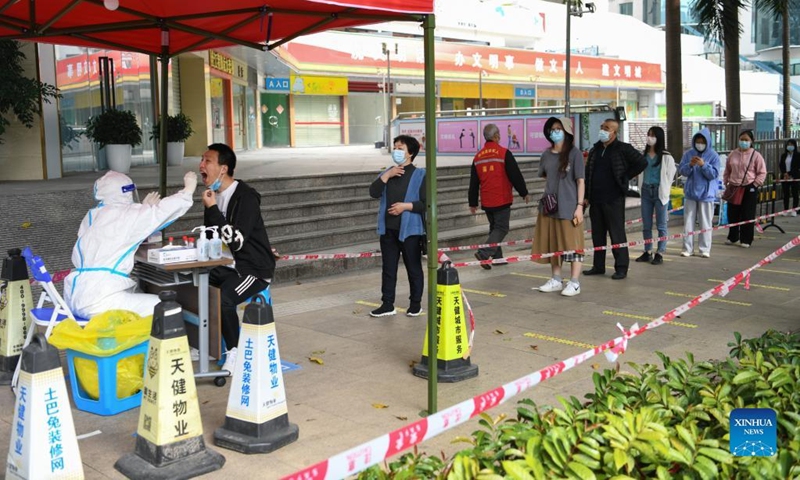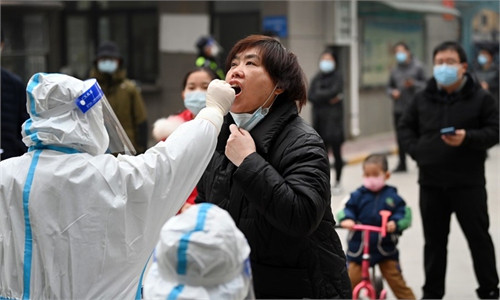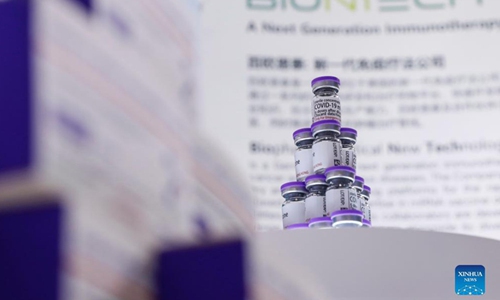Latest local COVID-19 cases in Shenzhen involve Delta strain, possibly through contaminated imported goods

Citizens queue up for nucleic acid test at a testing site in Futian District of Shenzhen, South China's Guangdong Province, January 9, 2022. Photo: Xinhua
Shenzhen, a mega-city in South China's Guangdong Province, has so far reported four confirmed local COVID-19 patients since Friday, which were infected by the Delta variant strain and were possible through the exposure to contaminated imported goods, the authorities said at Monday's press briefing.
As of 5 pm on Monday, four confirmed local COVID-19 cases have been reported since Friday, which belong to the same transmission chain. The four cases are hospitalized and in a stable condition, the authorities said. The variant strain is different from the coronavirus infections in the latest wave of outbreak in the mainland, Hong Kong Special Administrative Region as well as imported infections in Shenzhen.
The first patient was engaged in the work of international goods supply chain, and had a recent history of contact with imported goods, the local authorities said, noting that there was a high risk of infection caused by exposure to coronavirus-contaminated imported goods.
From Friday to Sunday, a round of city-wide nucleic acid testing was conducted in Shenzhen, with a total of 22.19 million samples being taken, which were returned to be negative except the confirmed cases that were found, the authorities said.
At the press conference, the city health commission urged all medical institutions to not refuse to receive patients no matter the excuse, and a 24-hour on duty mechanism has been launched to ensure special groups in the wake of the tragic consequences resulted from delayed treatment of patients.
Earlier, the city called for residents to not leave the city unless it's necessary, and a negative nucleic acid test result issued within 48 hours has been required for entry since Friday.
Longgang and Luohu districts in Shenzhen also issued notices on Sunday and Monday suspending large-scale gatherings including forums and performances. Entertainment venues including teahouses, KTV clubs, child care centers and offline education and training institutions have been suspended from operating for one week.


